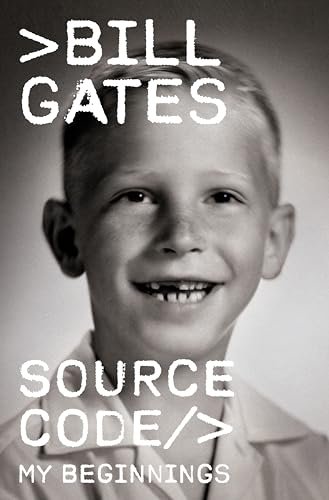Review: "Source Code: My Beginnings" by Bill Gates
When I first heard that Bill Gates was releasing a memoir, my curiosity was piqued. This is a man whose name is practically synonymous with technology and innovation, yet I’ve always felt there was more to his story than just computing triumphs. "Source Code: My Beginnings" delivers on that promise, weaving a rich tapestry of personal anecdotes and historical context that ultimately humanizes the tech titan.
In "Source Code," Gates takes us through the formative years of his life, painting a compelling portrait of his upbringing. The way he describes his family—particularly his ambitious parents, Bill Sr. and Mary—really stood out to me. Their influence is palpable throughout the memoir; I found their commitment to excellence inspiring. His grandmother "Gami," who introduced him to the world of mathematics through playful card games, is another cherished figure in his narrative. This intergenerational story beautifully illustrates how early influences can shape one’s path, a theme that resonates deeply with anyone reflecting on their own upbringing.
One of the most striking aspects is Gates’s candid discussion about his unique cognitive makeup. He acknowledges his intense focus and tendency to process vast amounts of information, traits that might now be classified as neurodivergent. This perspective is refreshing, especially as it brings to light the challenges and advantages that come with such a mindset. The memoir opens up a conversation about neurodiversity in leadership, an important topic that even extends beyond the tech realm.
Gates’s exploration of complex relationships is another highlight. His dynamic with his mother, filled with both high expectations and moments of tension, offers a nuanced view of familial influence. His friendship with Paul Allen is portrayed with authenticity, showcasing the creative synergy and occasional friction that come from collaborative partnerships.
However, there are moments where the pacing falters, particularly in sections that delve deeply into technical detail. While I’m sure many tech enthusiasts will relish the intricacies of early programming, some readers might find these parts a bit dense. Additionally, while Gates touches on his privilege, I found myself wishing for a more profound exploration of how his socioeconomic background contributed to his successes.
The writing style is clear and methodical, mirroring Gates’s analytical mind. He punctuates his chronological narrative with thoughtful reflections, making the book accessible without losing its intellectual weight. This balance is particularly effective in engaging readers who may not have a tech background but are interested in how the digital world was born.
What resonated with me most were the themes of mentorship, the importance of technology in education, and the delicate balance of competition and collaboration. Gates offers a roadmap for aspiring innovators, while also reflecting on the limitations faced by those not afforded similar advantages.
"Source Code: My Beginnings" isn’t just for tech aficionados; it serves as a captivating narrative for anyone interested in personal growth, family dynamics, and the transformative power of technology. This memoir leaves us at a tantalizing juncture—just as Gates departs from Harvard to embark on his business ventures, it sets the stage for future installments that will surely explore his philanthropic efforts and further influence on the world.
If you’re looking for a book that humanizes a figure so often viewed through a lens of achievement, this memoir is a must-read. It resonated with me not only as an exploration of Gates’s life but also as a reminder of the intricate web of experiences that shapes us all.
[ad_2]
Discover more about Source Code: My Beginnings on GoodReads >>







